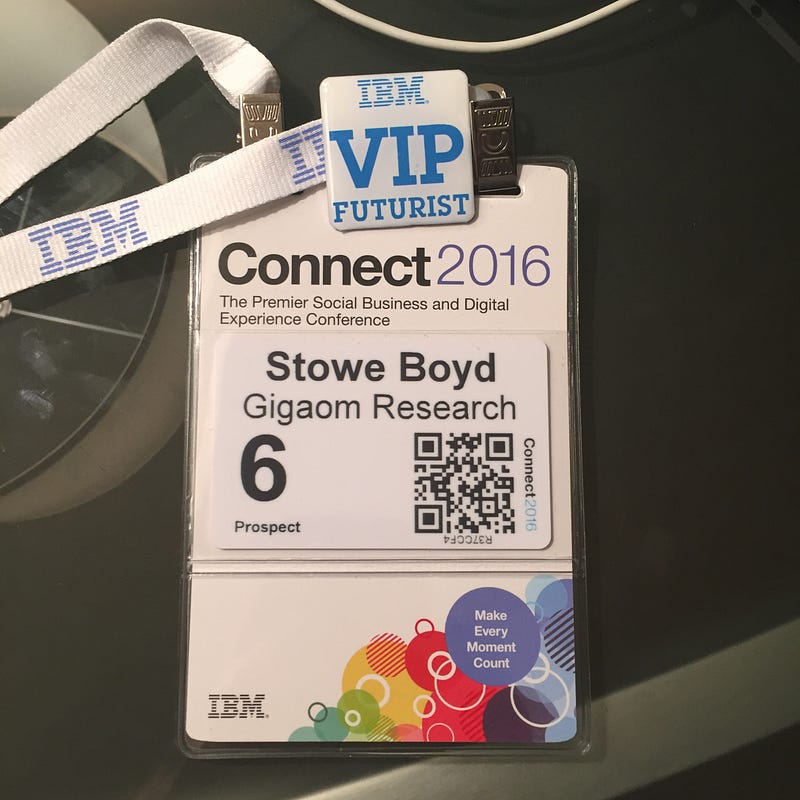I’m attending IBM Connect 2016 in Orlando as an IBM-selected Futurist, which is a first of a sort. While I have long been considered as a futurist — personally and professionally — this is the first time the characterization has appeared on a conference badge.

Note that I am not only a futurist, but a prospect!
As you might expect, I am singularly interested in learning more about IBM’s thinking about the future of work. But, I haven’t heard nearly as much about the future of work and #newwaytowork as I had hoped.
The opening sessions were strongly oriented toward IBM Verse, and its instrumentation of a mocked-up company. While I appreciated the illustration of Verse’s many well-considered affordances, I came away with the strong impression of a fictionalized but very conventional organization behind the play acting. However, this is mostly reading between the lines of the script, because the company wasn’t really described, aside from being a maker and marketer of sporting goods.
What would have been much better — at least for me — would have been to take some of the trends that are inarguably transforming businesses today, and to surface them explicitly as part of the story. What about the rise of freelancers, and the uberization of work, or the pressure to adapt to a new digital markets and economics? Or consider any of a dozen other themes that impact us all, as individuals, companies, and as a society. If things aren’t changing, why are companies adopting new tools?
Or even better, how about if IBM had presented a (slightly rosy) projection of a hypothetical near-term future, and lent some guidance to its customers about how to thrive there, how to transition to better adapt to that just-over-the-horizon world, and (yes) how IBM can help in the colonization of that new day.
Without that vision, I think any vendors’ demonstrations of tools fall a bit flat, because we are left only to imagine how we might use them today. Or more pragmatically, how we would use them in the company of last week or last month or last year. Your company today has already changed in ways that its management and employees have not realized.
McLuhan said,
We look at the present through a rear-view mirror. We march backwards into the future.
We are caught by our ties to the past, and I had hoped that IBM would try to cut into that a little bit. Because, as Willim S. Burroughs wrote,
When you cut into the present, the future leaks out.
Maybe next year.
Originally posted on medium.com/@stoweboyd on 2 February 2016